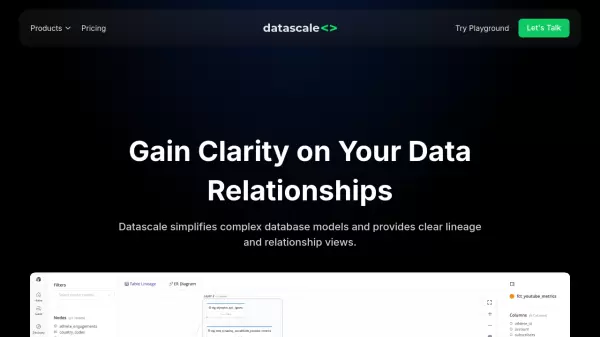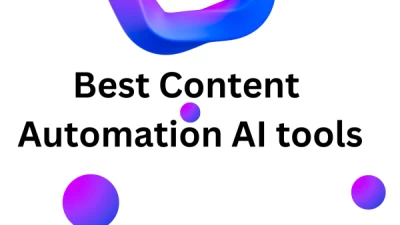What is Hackolade?
Hackolade is a robust data modeling solution designed to support both SQL and NoSQL databases, cloud data storage, APIs, and cutting-edge storage formats. The platform provides an intuitive visual interface for users to design, document, and manage schemas across a wide range of database technologies, including relational, document, key-value, columnar, graph, and multi-model architectures. Users can efficiently link entities, define attributes, set constraints, and maintain logical relationships, enabling agile schema evolution and robust metadata management.
This model-driven metadata collaboration platform emphasizes security and local model storage, facilitating seamless team collaboration without the need for downloads or registration. Hackolade integrates with popular Git repositories and supports metadata synchronization, empowering organizations to reduce data debt and drive future-ready data architecture with human-readable documentation outputs and comprehensive schema code generation options.
Features
- Polyglot Data Modeling: Supports relational, NoSQL, multi-model, and graph databases.
- Visual Schema Design: Drag-and-drop interface for creating and editing data models.
- Metadata-as-Code: Synchronizes technical schemas with business data dictionaries via GitOps.
- Reverse Engineering: Imports schema structures from existing database instances.
- Comprehensive Output: Generates code for DDLs, JSON Schema, Avro, Parquet, and more.
- Human-Readable Documentation: Export documentation in HTML, Markdown, or PDF formats.
- Browser-Based Access: No registration or downloads required; models stored locally.
- Cloud and Git Integration: Works with cloud storage and popular Git repositories for version control.
Use Cases
- Designing and optimizing database schemas for new applications.
- Reverse engineering and documenting existing schemas from development or production databases.
- Enabling collaborative metadata management between development and business teams.
- Synchronizing technical schemas with business data dictionaries using GitOps workflows.
- Ensuring schema quality control for big data analytics and multi-model environments.
- Generating critical database artifacts and documentation for compliance and audit.
FAQs
-
Which databases and technologies are supported?
Hackolade supports a wide variety of SQL, NoSQL, multi-model, graph, and cloud storage technologies including MongoDB, PostgreSQL, DynamoDB, Neo4j, Amazon S3, and many more. -
Does Hackolade require installation or registration?
No installation or registration is required; Hackolade runs directly in the browser and stores models locally. -
Can models be integrated with Git repositories?
Yes, Hackolade integrates with popular Git repositories such as GitHub, GitLab, Bitbucket, and Azure DevOps Repos. -
Is documentation generation supported?
Hackolade enables users to export human-readable documentation in HTML, Markdown, and PDF formats.
Related Queries
Helpful for people in the following professions
Hackolade Uptime Monitor
Average Uptime
100%
Average Response Time
198.6 ms
Featured Tools
Join Our Newsletter
Stay updated with the latest AI tools, news, and offers by subscribing to our weekly newsletter.











